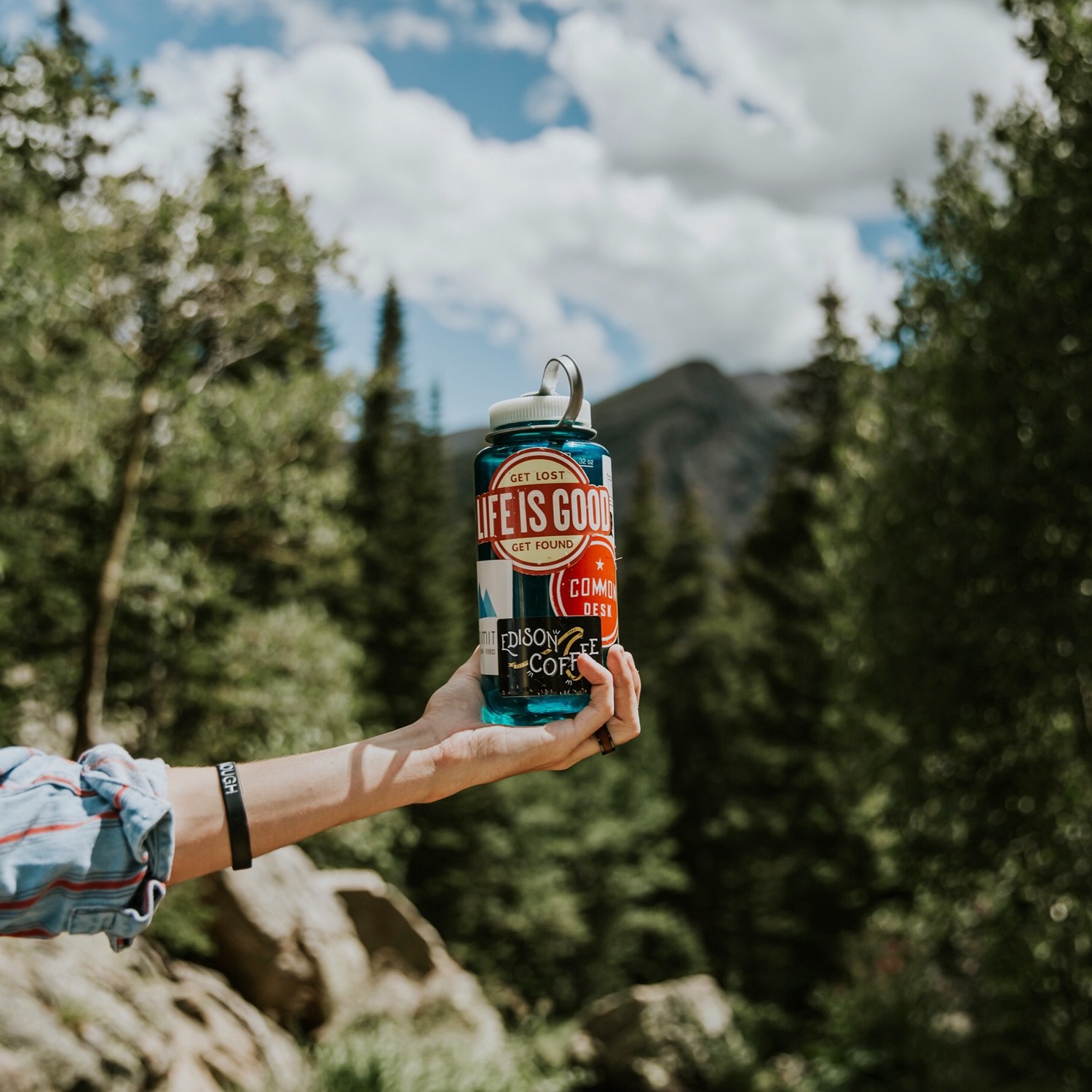When it comes to what you eat and drink, you may be fighting harmful addictions disguised as preferences.
It doesn’t have to be this way. Simple, low-risk changes in your perspective and behavior can have high rewards for your health, especially when it comes to your dietary choices, especially drinking more water. Here’s how.
We’re human. We often fail to realize the weight that seemingly insignificant, everyday decisions carry. In fact, some of these decisions we call “preferences” can turn out to be addictions. I’ll give you an example.
As a teen in the 1980s, I got really into working out and lifting weights. At that time, it seemed like all the successful bodybuilders were drinking Diet Coke. It was even marketed as the healthy alternative to normal soft drinks and I can remember seeing personal trainers and huge weightlifters walking around the gym with their personal 2-liter bottles. I clearly saw the connection between physical fitness and Diet Coke, so it didn’t take long for me to adopt this preference. I then discovered that the soda gave me an energy boost and allowed me to do more in the gym. And I felt great… for a while.
Over time, the feeling Diet Coke gave me began to plateau. Before long, I was drinking it just to feel decent. I started relying on it to get through the day and began to wonder how it was even possible to finish a workout without it. I was so accustomed to drinking Diet Coke that I forgot what it felt like not to drink it every day. I had become accustomed to the heartburn, stomachaches and body pain from drinking Diet Coke simply because I told myself, for years, that it was my “preference.”
After I got married, my wife Cadey and I made a commitment to get healthy and I decided to stop drinking Diet Coke. In just one day without it, I realized this was much more than a preference. I was literally experiencing withdrawal symptoms. I had quit caffeine before, but this was far worse.
The headaches and brain fog I experienced drove me to do some research and I discovered that aspartame, the sweetener in Diet Coke, acts as a powerful stimulant. In addition, the drink releases dopamine and glutamate, and glutamate is an excitotoxin shown to penetrate certain brain regions and rapidly destroy neurons. As it turns out, I was damaging my body on a daily basis and had overlooked it for years because it was simply part of my routine.
Without knowing it, I had increased my body’s reliance on aspartame and caffeine — two foreign chemicals that did nothing to improve my health. As a result, I decided to ignore all of my beverage preferences and drink only water for a week to see how it affected my body.
Now, the benefit of water is not necessarily a groundbreaking discovery. Plenty of medical professionals have talked about the importance of proper hydration — from steering people toward a healthy diet, to preventing kidney stones and even positive effects on the digestive system. Maintaining proper hydration is also vital to brain health. For example, one study from the Institute for Exercise and Environmental Medicine in Dallas showed that even mild dehydration was detrimental to working memory and caused increased feelings of anxiety and fatigue.
I confess: Those first few days were brutal. Every five minutes I had to resist the urge to sprint to the fridge and grab a soda. My head throbbed, my mood was all over the place, and my productivity took a nosedive. But suddenly I was breezing through day seven and decided to continue drinking only water for another week.
I started feeling better, sleeping better and even looking better. My weight stopped fluctuating so dramatically and my sugar cravings went away. My skin and hair started to look better. I also realized I didn’t crave other drinks. Without knowing it, I had actually reawakened my Natural Thirst Instinct.
My story is just one example. I’ve seen hundreds of people reclaim their Natural Thirst Instinct, improving their lives with one simple decision. I encourage you to take a step back and analyze your own daily routine. How many addictions in your life are masquerading as “preferences”? Do your daily activities promote your well being, or are they counterproductive?
The realities of these questions may help you get in touch with your body’s natural instincts to optimize performance.
And if you’d like to learn more about activating your Natural Thirst Instinct, check out my free 10 Days to Natural Thirst Challenge.
Originally published at www.huffingtonpost.com on March 31, 2016.


